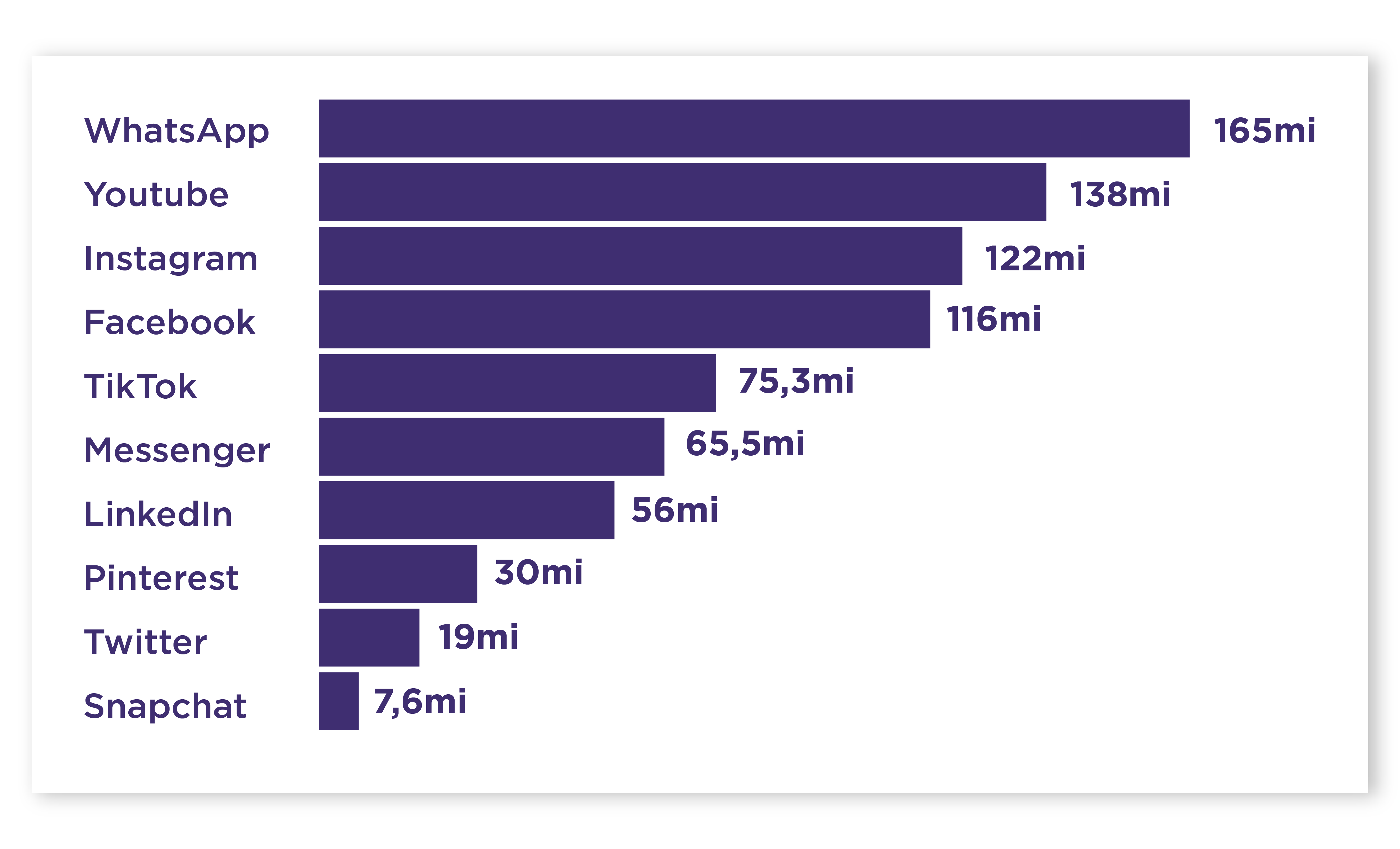
More humane and empathetic CEOs who know how to communicate with the public are increasingly occupying spaces – Photo: Shutterstock
In a world where everyone has a virtual life and personality, the idea that staying out of social networks preserves the leader's reputation is no longer applicable. On the contrary, the age of positioning and connection is easily seen as one of great opportunities to influence and engage people. The question today is to expose yourself in a conscious and planned way, to take advantage of the best that the virtual world has to offer, without falling into the traps.
Brazil started the year 2023 with 70.6% of its population connected through applications and social networks such as WhatsApp, Youtube, Instagram, LinkedIn and TikTok, among others. Globally, social media users number in the billions. Although a slowdown is taking place, the trend is that about two thirds of the world's population should be online by the end of this year. One cannot disregard the significance of these numbers, which support the argument, published in report released in 2023 by We Are Social and Hootsuite, that the leader needs to have a digital positioning.
The channels were expanded so that the leader can, independently of the media or the company's formal communications, establish contacts, tell his story, show his values and make his ideas echo directly with his stakeholders. In addition, CEOs who are more humane, empathetic and able to communicate are increasingly occupying the spaces of those who remain discreet, being one of the accelerated trends from the impacts of the Covid-19 pandemic.
The 10 most used social networks in Brazil*:

Therefore, staying offline further reduces the possibility of building a reputational capital aligned with one's own objectives, in addition to increasing the vulnerability of the leader by allowing, in a situation of doubt or crisis, there is only one version previously: that of the others. . The question that a large number of CEOs are asking themselves is how to act in this new environment in order to meet the expectations of different audiences without opening the door to new risks for the company.
So what's the best strategy? To be low or high profile? Keep social media open or closed to the public? The fact is that there is no right answer that fits everyone. It is necessary to analyze a series of variables to build a digital positioning strategy that is coherent and consistent with the leadership trajectory, which preserves and enhances the leader's reputation.
To make the most of the digital world, ANK recommends:
1) Knowing the characteristics of the main social networks, their specificities, types of content and audiences to which each one is more directed. Then choose to be in the one that makes the most sense.
2) Starting with LinkedIn is a good choice, as it is a more controlled virtual environment than other networks and professional.
3) Define the topics on which you will opine and proactively position yourself and keep up to date on them.
4) Evaluate whether it is really worth making or sharing content with the potential to provoke controversy, even if it is creative or funny. Once posted, the content is out of one's control.
5) Do not share or give an opinion on company matters about which you are not authorized to speak.
6) Check with reliable sources whenever you are in doubt about certain content and never share false information, so-called fake news, and fight misinformation.
Mariana Azevedo is a journalist and consultant for ANK Reputation
mariana.azevedo@ankreputation.com.br



